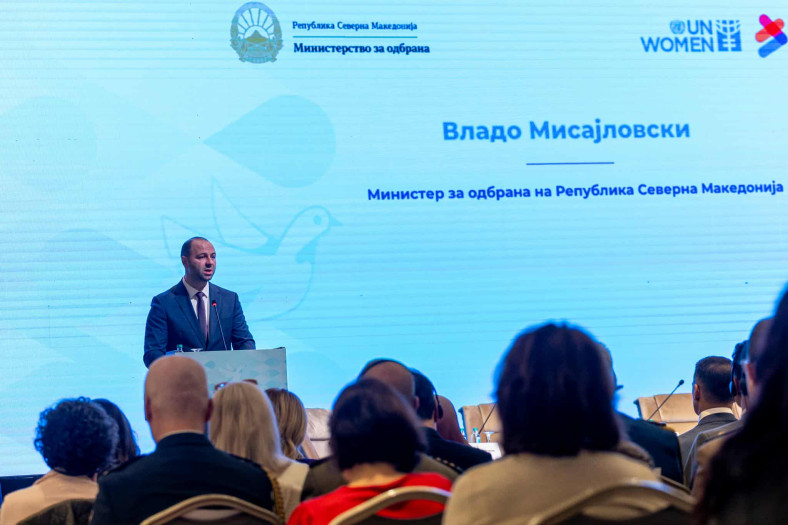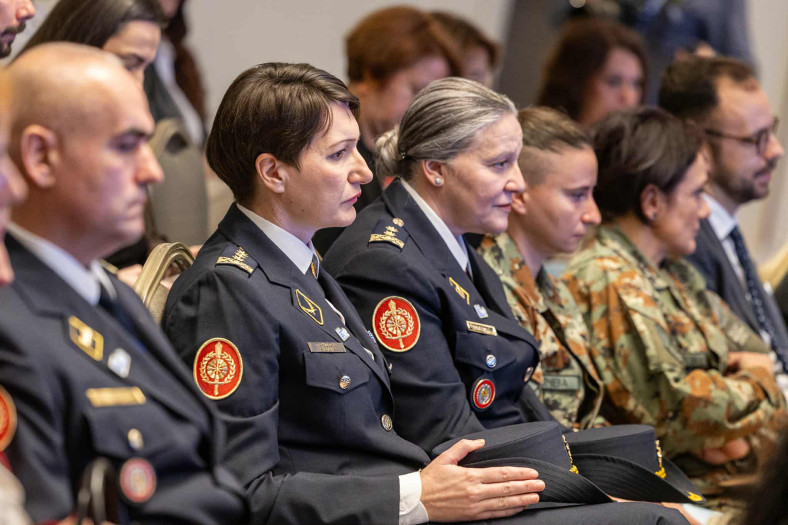Marking 25 years of UN Resolution 1325: women’s leadership is the key to lasting peace

“Our shared vision is a Europe — and a world — where women’s leadership in peace and security is no longer exceptional but expected. Because when women lead, peace lasts”, EU Ambassador Michalis Rokas stated in his address at an event in Skopje co-organised on this occasion by the Office of UN Women and the Ministry of Defence of North Macedonia.
The Resolution 1325 not only transformed the global understanding of peace and security - its values also became core principles of the EU’s Common Foreign and Security Policy. However, 25 years later, globally, progress is mixed. Over 100 countries have adopted national action plans on women, peace, and security. Still, only one in ten peace negotiations in 2024 included women at the table. The number of women and girls killed in conflicts rose dramatically in the past two years. And gender equality in peace processes remains underfunded.
“Hence, the Resolution 1325’s vision should go beyond inclusion — it should seek transformation: of institutions, of power structures, and of how peace itself is built”, said the Ambassador. This means ensuring women’s full participation in peace processes, holding perpetrators of gender-based violence accountable, protecting women peacebuilders and human-rights defenders, closing gender data gaps… “The approach is holistic: gender equality and women's empowerment are a prerequisite for dealing with the prevention, management and resolution of conflict”.
The EU remains firmly committed to the Women, Peace, and Security agenda – within its borders and in its external action. And it continues to partner with governments, parliaments, and civil society in North Macedonia and across the Western Balkans, strengthening gender-responsive governance and peacebuilding.
North Macedonia, for its part, has made important steps. Through national actions plans, it integrated gender perspectives into peace and security. Progress was made especially at the Ministry of Defence and the Army – today, women occupy the majority of senior positions within the Ministry.
The event also saw addresses by President Gordana Siljanovska-Davkova, Minister of Defence Vlado Misajlovski and Head of UN Women’s Office in the country Vesna Ivanovikj-Castarede. There were also two panel discussions, involving ambassadors from several EU Member States and representatives of the Ministry of Defence and the Army, including female participants in foreign peacekeeping missions.








